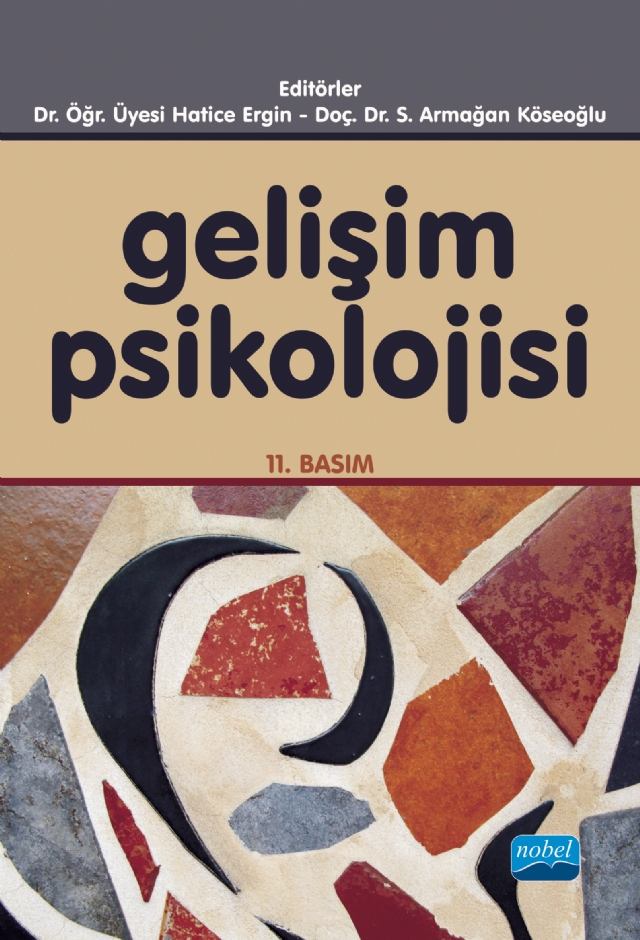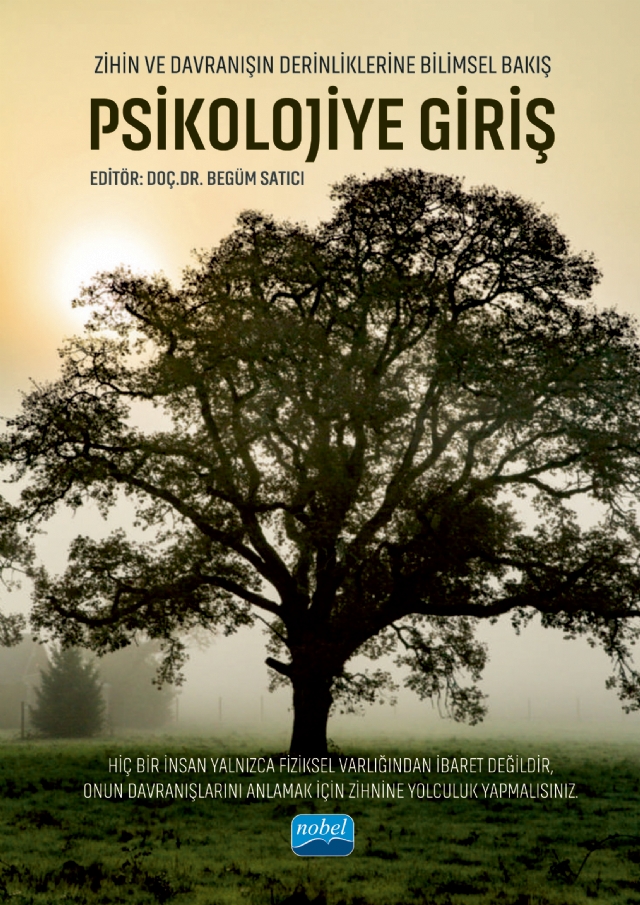Lifetime Development \ 1-1

The fact that many well-known debates, from daily life to political issues, from social problems to scientific research, fall within the boundaries of morality, is not unique to this age. These debates, which spread to all areas of life, bring multi-disciplinarity on the ground of science. Among these disciplines, perhaps one of the most important contributions to the scientific literature on morality comes from the science of psychology, with its encompassing curiosity about the human and the human. In the modern science adventure of psychology, the subject of morality, whose traces we find in important researches in developmental psychology, clinical psychology, social psychology, experimental psychology, even industrial psychology and organizational psychology, is gaining visibility day by day and the study of morality from a psychological point of view attracts attention. With this work, which emerged in order to make a modest contribution to this scientific interest and to compile studies on morality systematically, it has been tried to describe a moral psychology framework with both theoretical and applied fields.

Developmental Psychology; it is a branch of science that examines the characteristics of an individual in various life periods. Developmental psychology, which is based on basic scientific principles and methods; examines the physical, cognitive, emotional and psycho-social changes that an individual experiences throughout his or her life.
In this work; after explaining the theories and research methods in developmental psychology and the basic concepts of development, areas such as physical development, cognitive development, emotional development, self, identity and personality, and moral development are given in order; afterwards, family and school, which affect development, were considered as a system and also the developmental characteristics of children with different individual development were also examined. This book, in which the development is discussed and explained in detail and comprehensively, will be one of the main reference sources to be used in the field.
In this work; after explaining the theories and research methods in developmental psychology and the basic concepts of development, areas such as physical development, cognitive development, emotional development, self, identity and personality, and moral development are given in order; afterwards, family and school, which affect development, were considered as a system and also the developmental characteristics of children with different individual development were also examined. This book, in which the development is discussed and explained in detail and comprehensively, will be one of the main reference sources to be used in the field.

Since you have started to read this book, we can assume that you have an interest and curiosity in psychology. Psychology attracts the attention of almost everyone at some point because it tries to explain the "me" as a human being. Some want to understand themselves, some their partner, their boss, some their children and some their parents. In other words, the effort to understand people and ourselves in the first place leads us to learn psychology. As in the verses of the famous folk poet of Anatolia, Yunus Emre, which are rosewood in our language, "Science is knowledge, knowledge is knowing yourself, if you do not know yourself, it is a lot of reading".
However, this self-knowledge, self-learning, self-discovery can often turn into a toy in the hands of those who turn science into a profit for their own interests. As a matter of fact, not understanding psychology correctly "Are you reading my mind now?" It may also cause you to become the target of the question. “I am also interested in psychology.”, “We also understand psychology, I love personal development books.” Such sentences will be some of the things that those who will specialize in this field will often hear. So, is psychology really a field that anyone who is interested in can specialize in by reading a few books? I can imagine that you answered “no” to this question. Still, it can be equally dangerous to popularize psychology too much and push it away from science, leaving it only in the hands of scientists and making it elitist. Because science will only be useful as long as it reaches people and continues to develop like a living organism in life.
The science of psychology was shaped centuries ago by the answers given by philosophers to the questions they asked to understand human, and then it was born as a science on the basis of physiological studies. Psychology continues to keep our curiosity alive today, with hundreds of theories and millions of concepts written about it.
However, this self-knowledge, self-learning, self-discovery can often turn into a toy in the hands of those who turn science into a profit for their own interests. As a matter of fact, not understanding psychology correctly "Are you reading my mind now?" It may also cause you to become the target of the question. “I am also interested in psychology.”, “We also understand psychology, I love personal development books.” Such sentences will be some of the things that those who will specialize in this field will often hear. So, is psychology really a field that anyone who is interested in can specialize in by reading a few books? I can imagine that you answered “no” to this question. Still, it can be equally dangerous to popularize psychology too much and push it away from science, leaving it only in the hands of scientists and making it elitist. Because science will only be useful as long as it reaches people and continues to develop like a living organism in life.
The science of psychology was shaped centuries ago by the answers given by philosophers to the questions they asked to understand human, and then it was born as a science on the basis of physiological studies. Psychology continues to keep our curiosity alive today, with hundreds of theories and millions of concepts written about it.

Individual; it is an entity that is constantly developing, affecting its environment, being affected by the environment and changing. This development and change process of the individual can bring along adaptation problems. In order to understand the possible incompatibilities experienced by the individual with himself, others and the society, and to carry out studies to increase harmony, it is necessary to know what harmony and incompatibility are, what types of adjustment problems exist, what factors affect adjustment problems, and what can be done to prevent and intervene in adjustment problems. For this reason, this book, which deals with all development periods of the individual from birth to death and possible adaptation problems that he may experience, is a resource for experts and students working in the field.